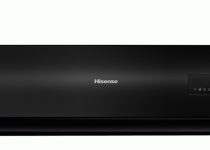What are Islamic Banks? List of Islamic Banks in Nigeria: their Origin, Growth and Details
Islamic banking is a system of banking that is based on the principles of Islamic law, or Shariah. This means that Islamic banks do not invest in or lend money for activities that are considered to be haram, or forbidden, under Shariah. For example, Islamic banks do not invest in or lend money for businesses that produce alcohol, pork, or gambling.
Islamic banks also operate on a profit-and-loss sharing basis. This means that the bank and the customer share the profits of any investment, but they also share the losses. This is in contrast to traditional banks, which typically charge interest on loans.
The Islamic banking industry in Nigeria has been growing steadily in recent years. This is due to a number of factors, including the increasing Muslim population in Nigeria, the growing awareness of Islamic banking, and the government’s support for the industry.
In this article, we will discuss the basics of Islamic banking, the history of Islamic banking in Nigeria, and the growth of the Islamic banking industry in Nigeria. We will also provide a list of Islamic banks in Nigeria.
Table of Contents
What are Islamic Banks?
Islamic banking is a system of banking that is based on the principles of Islamic law, or Shariah. This means that Islamic banks do not invest in or lend money for activities that are considered to be haram, or forbidden, under Shariah. For example, Islamic banks do not invest in or lend money for businesses that produce alcohol, pork, or gambling.
Islamic banks also operate on a profit-and-loss sharing basis. This means that the bank and the customer share the profits of any investment, but they also share the losses. This is in contrast to traditional banks, which typically charge interest on loans.
The main difference between Islamic banking and traditional banking is that Islamic banking prohibits the payment or receipt of interest. This is because interest is considered to be riba, which is a form of usury that is forbidden under Shariah.
There are a number of different ways that Islamic banks can avoid paying or receiving interest. One way is to use a system called murabaha, which is a type of cost-plus financing. In murabaha, the bank buys an asset on behalf of the customer and then sells it to the customer at a profit. The profit is the only charge that the customer pays, and it is not considered to be interest.
Another way that Islamic banks can avoid paying or receiving interest is to use a system called musharaka, which is a form of joint venture. In musharaka, the bank and the customer invest in a project together, and they share the profits and losses of the project.
Islamic banking is a growing industry, and there are now Islamic banks operating in over 70 countries around the world. The Islamic banking industry in Nigeria is also growing rapidly, and there are now a number of Islamic banks operating in Nigeria.
Islamic Banking in Nigeria
The first Islamic bank in Nigeria was established in 2003. This bank, Jaiz Bank, was founded by a group of Islamic scholars and businessmen who were concerned about the lack of Islamic banking options in Nigeria.
Since the establishment of Jaiz Bank, a number of other Islamic banks have been established in Nigeria. These banks include Unity Bank, 1st City Monument Bank, and Sterling Bank.
The Islamic banking industry in Nigeria is growing rapidly, and it is expected to continue to grow in the coming years. This is due to a number of factors, including the increasing Muslim population in Nigeria, the growing awareness of Islamic banking, and the government’s support for the industry.
Benefits of Islamic Banking
There are a number of benefits to Islamic banking. One benefit is that it is based on the principles of Shariah, which means that it is considered to be a more ethical form of banking.
Another benefit of Islamic banking is that it is more transparent than traditional banking. This is because Islamic banks are required to disclose all of their fees and charges, which is not always the case with traditional banks.
Read Also: How to Borrow Money from Cash App on Android, iPhone in 2023.
List of Islamic Banks in Nigeria: their Origin, Growth and Details
Here is a list of Islamic banks in Nigeria along with their origin, growth, and some key details:
- Jaiz Bank Plc:
- Origin: Jaiz Bank is Nigeria’s first full-fledged Islamic bank, established in 2003 as Jaiz International Plc and later rebranded to Jaiz Bank Plc in 2011.
- Growth: Over the years, Jaiz Bank has grown to become one of the leading Islamic banks in Nigeria, providing a wide range of Sharia-compliant banking products and services.
- Details: Jaiz Bank offers services such as savings and current accounts, trade finance, corporate banking, and Takaful (Islamic insurance) products.
- Stanbic IBTC Bank Plc:
- Origin: Stanbic IBTC Bank is a subsidiary of Standard Bank Group and began operations in Nigeria in 1989.
- Growth: It has embraced Islamic banking principles by offering Sharia-compliant products under its Islamic Banking division.
- Details: Stanbic IBTC Bank’s Islamic Banking unit provides Islamic financing, investment products, and asset management services adhering to Islamic principles.
- SunTrust Bank Nigeria Limited:
- Origin: SunTrust Bank Nigeria Limited was granted a banking license in 2015 and began operations as a commercial bank.
- Growth: It later introduced Islamic banking windows to provide Sharia-compliant services.
- Details: SunTrust Bank offers Islamic banking products and services, including Murabaha (cost-plus financing) and Mudarabah (profit-sharing) accounts.
- TajBank Limited:
- Origin: TajBank is a relatively new entrant to the Nigerian banking sector, receiving its banking license in 2019.
- Growth: Since its inception, TajBank has been dedicated to Islamic finance principles.
- Details: TajBank offers a range of Islamic financial products and services, including savings accounts, investment accounts, and trade finance.
- Coronation Merchant Bank Limited:
- Origin: Coronation Merchant Bank is one of Nigeria’s leading merchant banks, established in 2015.
- Growth: It introduced an Islamic banking subsidiary, Coronation Capital, which offers Sharia-compliant products and services.
- Details: Coronation Capital provides Islamic finance solutions, including Sukuk (Islamic bonds) issuance and structured finance deals.
FAQS
What is the history of Islamic banks in Nigeria?
The history of Islamic banks in Nigeria can be traced back to 2003, when the first Islamic bank, Jaiz Bank, was established. Jaiz Bank was founded by a group of Islamic scholars and businessmen who were concerned about the lack of Islamic banking options in Nigeria.
Since the establishment of Jaiz Bank, a number of other Islamic banks have been established in Nigeria. These banks include Unity Bank, 1st City Monument Bank, Sterling Bank, Bank of Industry, and First Bank of Nigeria.
The Islamic banking industry in Nigeria has been growing rapidly in recent years. This is due to a number of factors, including the increasing Muslim population in Nigeria, the growing awareness of Islamic banking, and the government’s support for the industry.
What is the growth rate of Islamic banks?
The growth rate of Islamic banks in Nigeria has been very impressive in recent years. In 2019, the total assets of Islamic banks in Nigeria were estimated to be around $1 billion. By 2022, this figure had grown to over $2 billion.
This growth is expected to continue in the coming years. The Muslim population in Nigeria is expected to continue to grow, and the awareness of Islamic banking is also expected to continue to grow. This will create a larger market for Islamic banking products and services, which will lead to further growth in the industry.
What is the origin of Islamic banking?
The origin of Islamic banking can be traced back to the early days of Islam. The Prophet Muhammad (peace be upon him) said that “all forms of الربا (riba) are forbidden.” Riba is the Arabic word for interest, and it is considered to be a form of usury that is forbidden under Shariah.
The first Islamic banks were established in the early 20th century in Egypt and Iran. These banks were founded by Islamic scholars who were concerned about the growing problem of usury in the Muslim world.
Which Islamic banks are in Nigeria?
Some of the Islamic banks operating in Nigeria include:
- Jaiz Bank Plc
- Stanbic IBTC Bank Plc (Islamic Banking Division)
- SunTrust Bank Nigeria Limited (Islamic Banking Window)
- TajBank Limited
- Coronation Merchant Bank Limited (Coronation Capital – Islamic Finance Subsidiary)
Who started Islamic banking in Nigeria?
Islamic banking in Nigeria was pioneered by Jaiz Bank Plc. Established in 2003, Jaiz Bank became Nigeria’s first full-fledged Islamic bank, providing Sharia-compliant financial services to individuals and businesses. Since its inception, Jaiz Bank has been at the forefront of promoting Islamic banking principles and has played a significant role in shaping the Islamic finance landscape in Nigeria.
Conclusion
As Islamic banking continues to gain momentum in Nigeria, it reflects a growing awareness of the importance of ethical finance and a desire to create a more just and equitable financial system. The success of Islamic banks in Nigeria is a testament to the enduring appeal of principles that prioritize social responsibility, transparency, and economic fairness.
As the journey of Islamic banking in Nigeria unfolds, it presents a beacon of hope and progress in the pursuit of financial inclusivity, where tradition meets innovation, and values harmonize with prosperity. The continued growth and evolution of Islamic banks in Nigeria offer a compelling narrative of a nation embracing ethical finance to build a sustainable and prosperous future for all.




